Waste Disposal Guide
Recycling
Bagged Recyclables are not accepted. If you collect your recyclables in a bag, empty them directly into the dumpster or trash room recycling can, and reuse the bag!
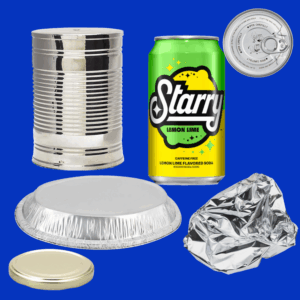
Metals
- Aluminum, tin, and steel cans are accepted
- Empty food and liquids from aluminum cans and foil
- When food is thick, rinse thoroughly before recycling
- Remove metal lids from glass jars
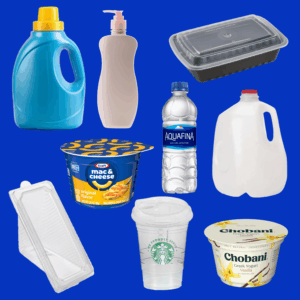
Plastics 1, 2, and 5
- Recyclable plastics are often also identifiable by shape; bottles, jugs, and tubs are most often made of 1, 2, or 5.
- Empty all liquids and screw plastic caps back on
- Make sure all food is removed
- Keep plastic lids on plastic cups
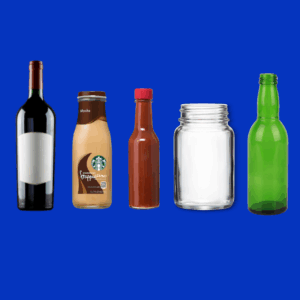
Glass
- Empty all liquids
- Remove metal lids and recycle them loose
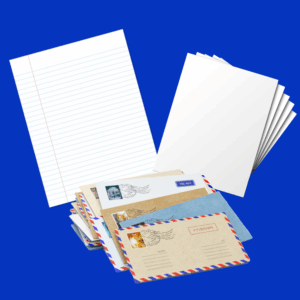
Paper
- Paper, newspaper, paper bags, envelopes with plastic film, and magazines
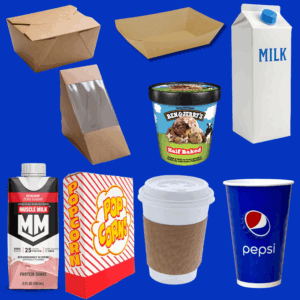
Paper Food Containers
- Empty liquids and dispose of all food before recycling.
- If heavily soiled with food residue, dispose of item in trash.
- Dispose of plastic lids, caps, and straws from paper cups in the trash, as they are too small to be recycled on their own
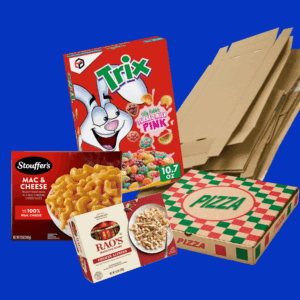
Paperboard and Cardboard
- Cardboard boxes, including shipping boxes, cereal boxes, and empty pizza boxes with a small amount of grease are accepted
- Remove all inside/outside packaging (plastic wrap, bubble wrap, Styrofoam peanuts, etc.)
Trash
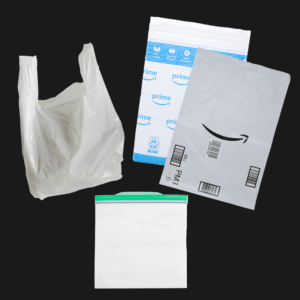
Plastic Bags
- Plastic #4: LDPE
- Bags can get caught in recycling sorting equipment and cause problems with the machine
- Avoid plastic bags, choose reusable
- These items can be recycled at many grocery stores, including Meijer, Walmart, and Target.
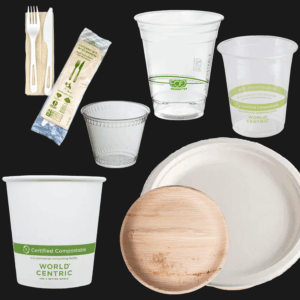
Compostable and Plant-Based Materials
- Certified Compostable and Biodegradable materials are currently not able to be composted through our hauler due to complex contamination.
- Items labeled “Compostable”
- Plastic #7: PLA (bioplastic)
- BPI Certified
- Plant materials (i.e., bamboo)
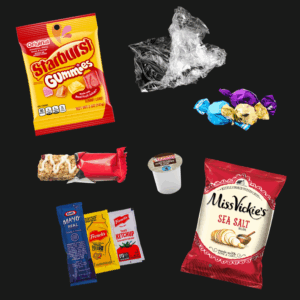
Wrappers and Packets
- Plastic #4: LDPE
- Wrappers and packets cannot be easily separated by sorting equipment and don’t have an end market to turn into a new product.
- Often, this type of packaging is made up of multiple materials, which prevents it from being recyclable.
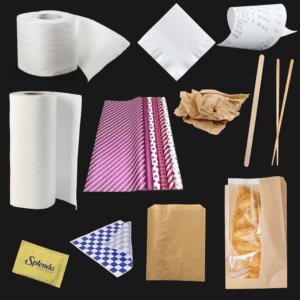
Napkins, Wood, and Non-Recyclable Papers
- Soft papers like paper towels, napkins, toilet paper (even unused), and tissues.
- Wood
- Wax-coated papers
- Receipts and other thermal papers are BPA-coated and cannot be recycled
- Most wrapping papers, as many contain foil, glitter, or plastic coating
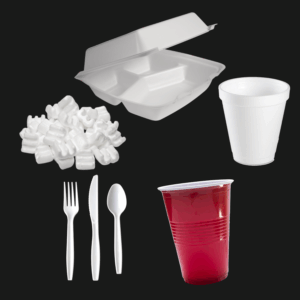
Styrofoam
- Plastic #6PS (Polystyrene) cannot be recycled and should be avoided
- Styrofoam serving ware, including cups, plates, and to-go containers, must be thrown in the trash.
- Plastic cutlery and many colored or opaque plastic cups (ex: red solo cups)
- Packing peanuts
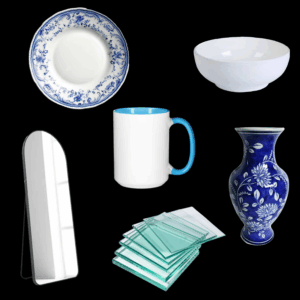
Ceramics and Non-recyclable Glass
- Ceramics cannot be recycled and must be donated or go to the trash
- Ceramics contaminate the glass recycling process
- mirrors and glass panes also contaminate the recycling process
- When mixed with regular glass during recycling, ceramics cause impurities, which cause the glass to break
Food Composting
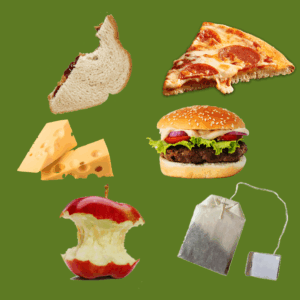
All Food Scraps
Our compost hauler accepts ALL food scraps, including produce, processed foods like potato chips, meats, dairy, coffee grounds, and tea bags.
Specialty Recycling
Items listed below are hard-to-recycle, meaning they are not collected in traditional recycling collection bins and require special processing to be recycled. We offer special collections on campus for the following items.
Electronic and Battery Waste
Information Technology (IT) has expanded its electronics collection and recycling program and now accepts a wide range of devices and accessories, including laptops, desktops, monitors, keyboards, cables, phones, small electronics, and more. See the full list of accepted items.
Drop off accepted electronics at the IT Help Desk (Irwin 3rd floor) at any time for recycling.
Dispose of any batteries in any battery collection bin, conveniently located across campus. Explore drop off locations and accepted battery types.
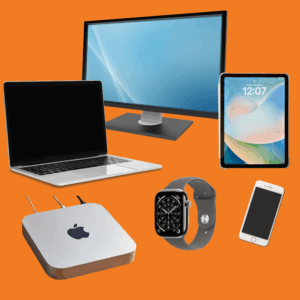
Computing Devices
- Both Butler-owned and personally-owned devices are accepted for electronic recycling at the IT Help Desk on the third floor of Iwrin Library.
- Data is securely erased prior to recycling.
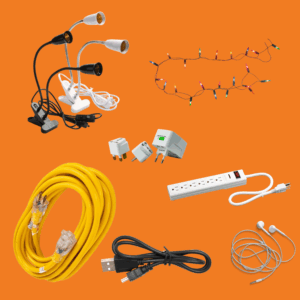
Cords, Cables, and Adapters
- String lights, chargers, extension cords, adapters, and powerstrips.
- You should never throw away wires, cords, or cables that contain conductors, plastic insulation, or electronic connectors.
- Not only do they contain valuable metals that can be recycled, but they can also release toxic materials, such as lead, cadmium, and flame retardants, which can leak when not properly disposed of.
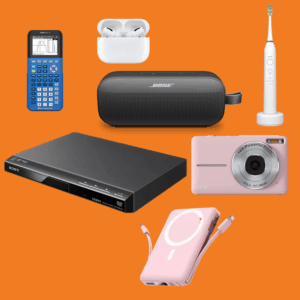
Embedded and Rechargeable Batteries
- Rechargeable calculators, speakers, cameras, toothbrushes, and headphones.
- Items with embedded batteries can cause environmental harm and pose fire and explosion hazards when not disposed of properly.
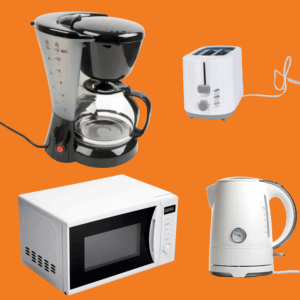
Small Appliances
- Coffee machines, toasters, microwaves, and electric kettles.
- These items must be disposed of through the proper channels to recover valuable materials and prevent hazardous wastes from contaminating soil and water.
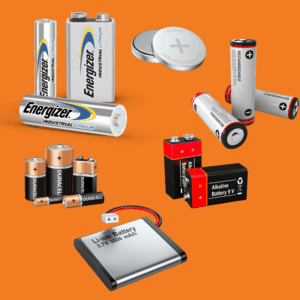
Batteries
- Alkaline, Button/coin Cell, Lithium-ion, Nickel-Cadmium.
- Batteries contain valuable metals like lithium, cobalt, and nickel that can be recovered and reused, reducing the need for mining. They also hold hazardous chemicals that can leak into soil and water if thrown in the trash.
- Recycling batteries keeps toxins out of the environment, conserves resources, and supports a cleaner, safer planet.
Other
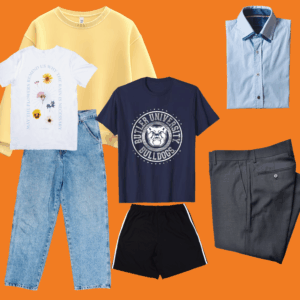
Clothing
- Shirts, shorts, pants, dresses, skirts, jackets etc.
- Donate gently used and well-loved items to Blue’s Closet, our campus thrift store, to prevent an increase in textiles in landfills.
- Shop second-hand to reduce clothing waste and resource use.
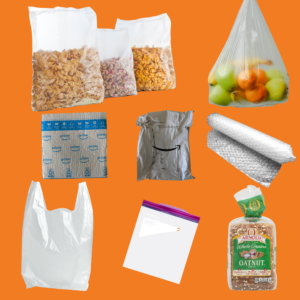
Plastic Bags and Films
- Produce bags, store bags, cereal box liners, bread bags, case overwrap, ziploc bags, bubble wrap, plastic delivery packages
- Drop off accepted items in the plastic collection bin near Butler Mail Office (Holcomb Building 050)
- Make sure items are empty and clean before dropping off.

